Disclosure: This article contains affiliate links. We may earn a commission from purchases at no extra cost to you, which helps our travel content.
The morning sun painted Kigali's rolling hills in golden hues as my friend Claire's two children pressed their faces against our taxi window, eyes wide with wonder. Having volunteered to guide this family adventure through Rwanda, I was reminded of my own childhood discoveries traveling through Brazil's diverse landscapes. Rwanda—often called 'The Land of a Thousand Hills'—offers families an extraordinary blend of cultural immersion, wildlife encounters, and living history lessons that simply can't be taught in classrooms.
Kigali with Kids: A Gentle Introduction to Rwanda
Our journey began in Kigali, Rwanda's clean, organized capital that immediately challenges Western preconceptions about African cities. I've found that children respond best to new cultures when eased in gently, so we started at the Inema Arts Center, where contemporary Rwandan artists showcase their vibrant works. The kids were immediately drawn to the outdoor sculpture garden, running between colorful installations while Claire and I chatted with local artists.
The next day brought a visit to the Kigali Genocide Memorial—a decision Claire and I had carefully discussed beforehand. For families with children over 10 (Claire's were 11 and 13), this somber site provides age-appropriate educational sections that explain Rwanda's history in accessible terms. The memorial gardens offered a peaceful space for reflection afterward, where the children asked thoughtful questions about reconciliation and resilience.
For lighter moments, Kigali's many excellent cafés provided perfect respite. At Question Coffee, the kids were fascinated by the barista demonstrations while enjoying fresh fruit smoothies. I always pack a travel card game for such moments—it's compact enough to fit in any daypack and creates instant connection with local children who often gather around curiously to join in.
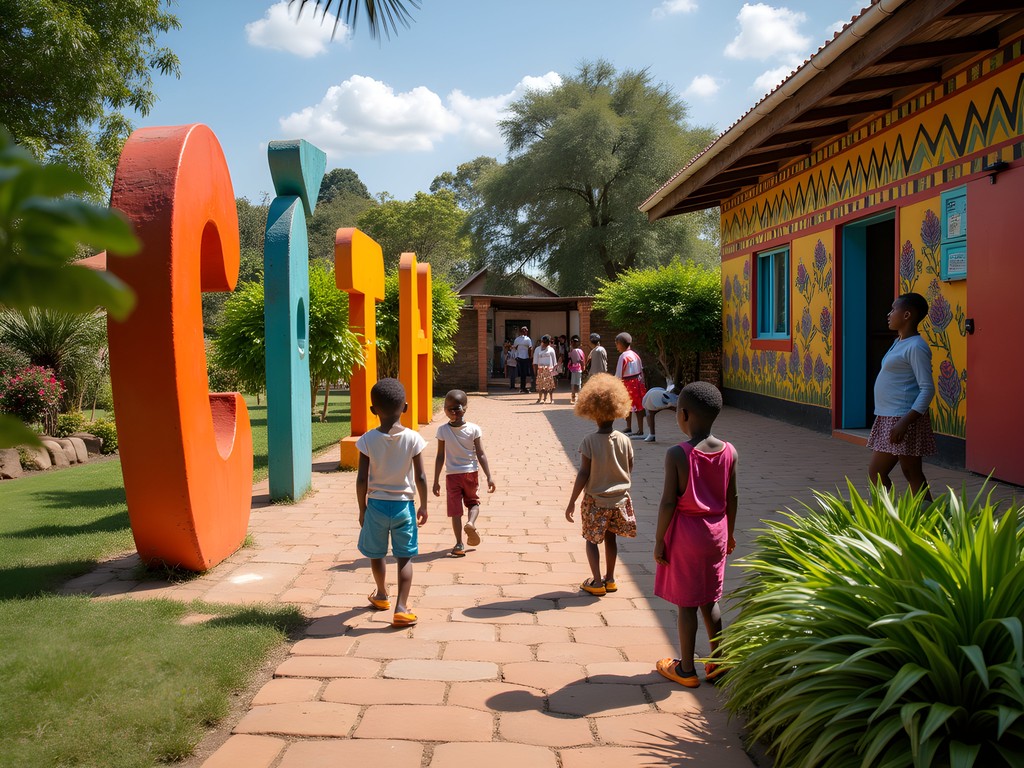
💡 Pro Tips
- Visit the Kigali Genocide Memorial early in the day when it's quieter, allowing for more reflective experience
- Bring a reusable water bottle for each family member—Kigali is very environmentally conscious with many refill stations
- Schedule downtime each afternoon—Rwanda's intensity can be overwhelming for younger travelers
The Journey to Butare: Turning Transit into Adventure
The two-hour drive from Kigali to Butare (now officially Huye) transforms mundane transit into a magical journey through Rwanda's countryside. Rather than distracting the children with tablets, I encouraged them to count the hills (they reached 78 before losing track) and spot different types of transport—from modern buses to traditional wooden bicycles carrying impossible loads.
We stopped at the equator crossing point, where the kids delighted in standing with one foot in each hemisphere. I always pack a pocket compass for such moments—watching the needle fluctuate at the equator created a science lesson more memorable than any textbook.
About halfway to Butare, we detoured to Nyanza to visit the King's Palace Museum. The traditional royal residence with its enormous thatched dome and the long-horned Inyambo cattle immediately captured the children's imagination. The cultural performers demonstrated traditional dance, even teaching the kids some basic moves that had us all laughing.
For the remainder of our drive, we played 'I Spy' using Kinyarwanda words we'd learned—an engaging way to absorb the local language. Claire's daughter proudly mastered 'amazi' (water) and 'igiti' (tree) before we reached Butare's outskirts.
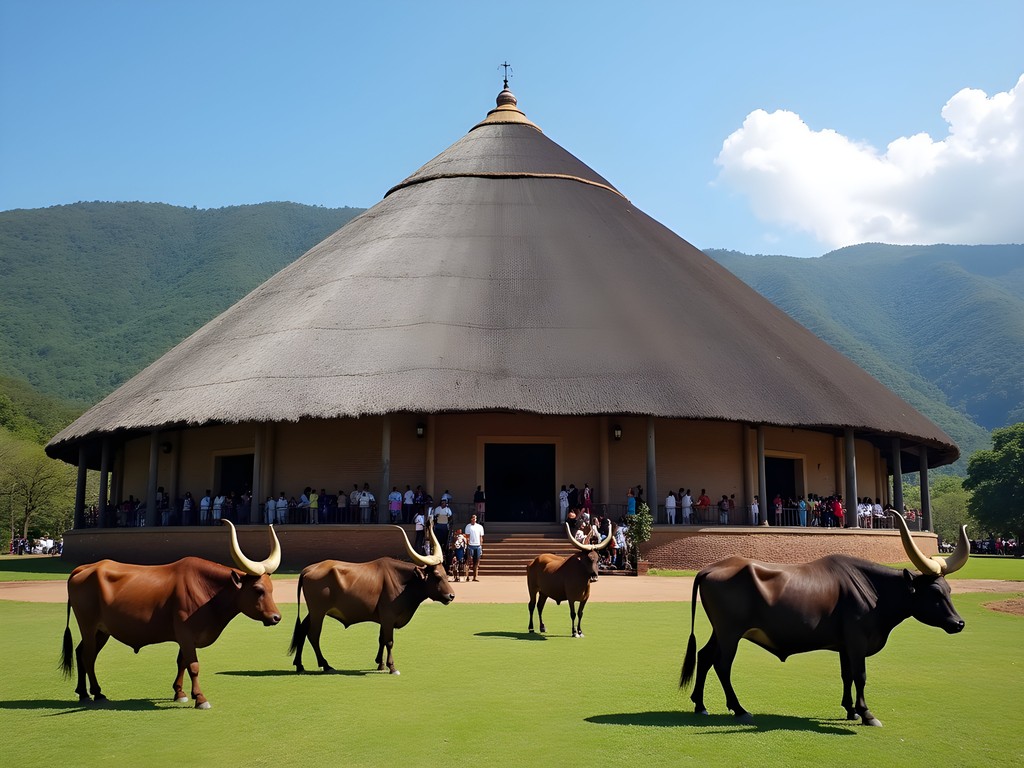
💡 Pro Tips
- Break up the journey with planned stops—children appreciate the chance to stretch legs and explore
- Pack motion sickness remedies if your children are prone—Rwanda's winding roads can challenge sensitive stomachs
- Learn basic Kinyarwanda phrases before travel—locals appreciate the effort and children absorb languages quickly
Historic Butare: Rwanda's Cultural Heart
Butare offers families Rwanda's richest cultural immersion. We based ourselves at a charming guesthouse near the National Museum, allowing easy walking access to most attractions. Each morning began with fresh tropical fruits and warm mandazi (East African donuts) that the children quickly declared superior to anything back home.
The Ethnographic Museum became our educational anchor—its thoughtfully arranged exhibits trace Rwanda's cultural evolution from pre-colonial times. The children were fascinated by the traditional hunting tools and household items, drawing connections between these artifacts and modern equivalents. The museum guide tailored her explanations perfectly for young minds, engaging them with questions rather than lectures.
For hands-on learning, we arranged a pottery workshop with local artisans. Watching Claire's son concentrate intensely on shaping his clay pot—tongue slightly protruding in concentration—reminded me that children connect to cultures through doing rather than seeing. I documented these precious moments with my instant camera, giving the finished prints to our pottery teacher as a thank-you gift.
The University of Rwanda campus provided green space for afternoon picnics, where the children played football with local students—language barriers dissolving through shared activity. These spontaneous interactions often become the most treasured travel memories.
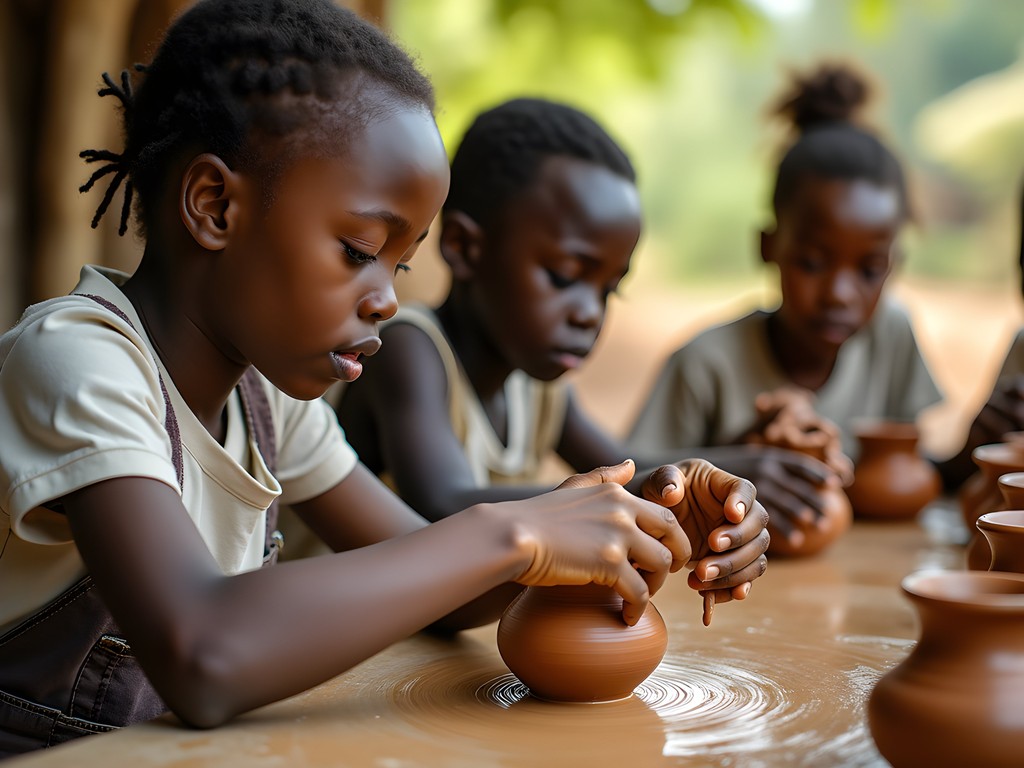
💡 Pro Tips
- Visit the Ethnographic Museum early and request a family-focused guide who can engage children
- Pack a small gift from your home country to share with local families you connect with—cultural exchange should be reciprocal
- Schedule craft workshops in advance through your accommodation—hands-on activities create deeper cultural understanding for children
Day Trips and Nature Excursions
While Butare and Kigali provide cultural richness, children need nature time to balance museum visits. We arranged a day trip to Nyungwe Forest National Park, about two hours from Butare. The canopy walkway suspended 60 meters above the forest floor thrilled the children—though Claire looked considerably less comfortable with the height!
For younger travelers, I highly recommend child-sized binoculars that can withstand rough handling. Claire's daughter spotted three different primate species through hers, creating a personal connection to Rwanda's conservation efforts.
Closer to Butare, the Murambi Genocide Memorial presents a challenging but important visit for families with teenagers. Unlike Kigali's more abstract memorial, Murambi's preserved remains make history viscerally real. Claire and I prepared the children carefully, emphasizing that understanding difficult history helps build a more compassionate future.
For lighter adventures, we hired bicycles to explore the countryside surrounding Butare. Rwanda's 'Land of a Thousand Hills' nickname became abundantly clear as we huffed up slopes, but the children's determination never wavered. Local children raced alongside us, creating impromptu competitions that left everyone breathless with exertion and laughter.
In the evenings, we'd sit on our guesthouse veranda, using a star guide book to identify constellations in Rwanda's remarkably clear skies—the Southern Cross visible in ways impossible from Dublin or São Paulo.
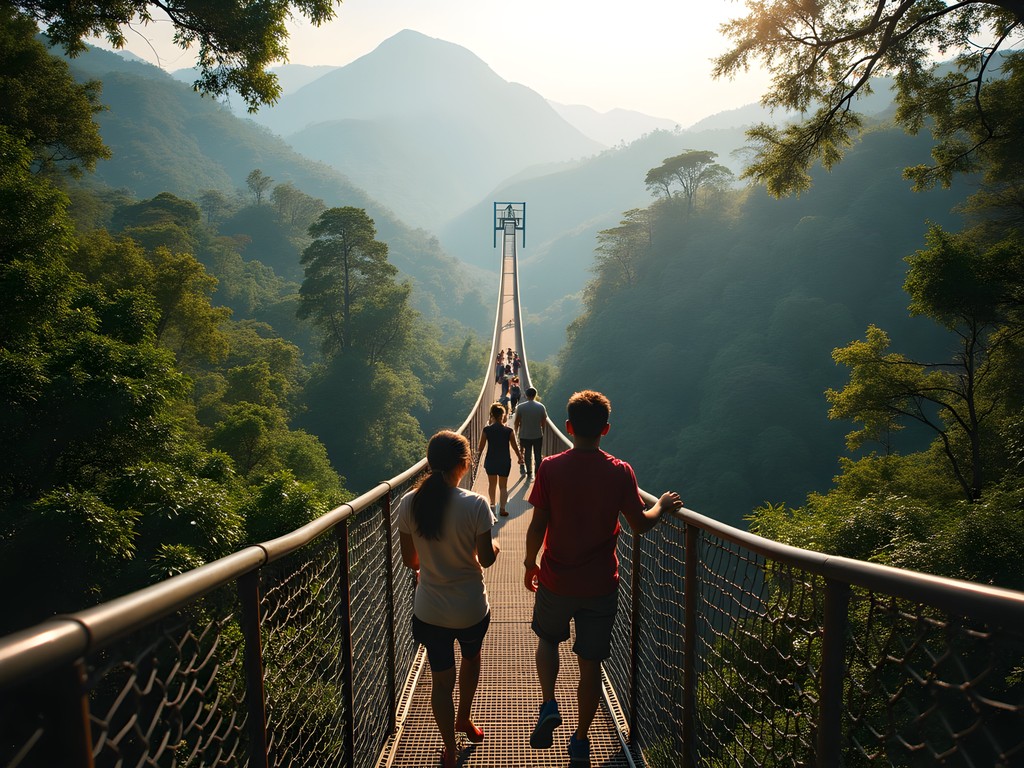
💡 Pro Tips
- Book Nyungwe Forest permits several weeks in advance—the canopy walk often sells out
- Pack lightweight rain jackets even in dry season—forest microclimates can bring unexpected showers
- Discuss difficult historical sites like Murambi before visiting, giving children age-appropriate context
Connecting with Local Families: The Heart of Educational Travel
The most profound educational experiences came through connections with Rwandan families. Through a community tourism initiative, we spent an afternoon with a local family in their home outside Butare. While the adults conversed about everything from politics to parenting, the children discovered universal games like jackstones (played with small stones) and string figures that transcended language barriers.
The mother demonstrated traditional basket weaving, a skill requiring mathematical precision that fascinated Claire's mathematically-minded daughter. We brought along a polaroid printer to print smartphone photos on the spot—leaving our host family with tangible memories of our cultural exchange.
For families visiting Rwanda, I cannot overstate the value of these home visits. Children absorb cultural nuances through direct interaction in ways museum exhibits simply cannot match. When Claire's son helped prepare isombe (cassava leaf stew), his usual vegetable aversion mysteriously vanished, and he declared it 'actually pretty good'—a culinary miracle any parent would appreciate!
Before leaving, we participated in a traditional umuganda—community work project—helping to clear a school playground. Working alongside local families created natural opportunities for the children to form connections, and Claire later told me this experience featured prominently in both children's school presentations about Rwanda.
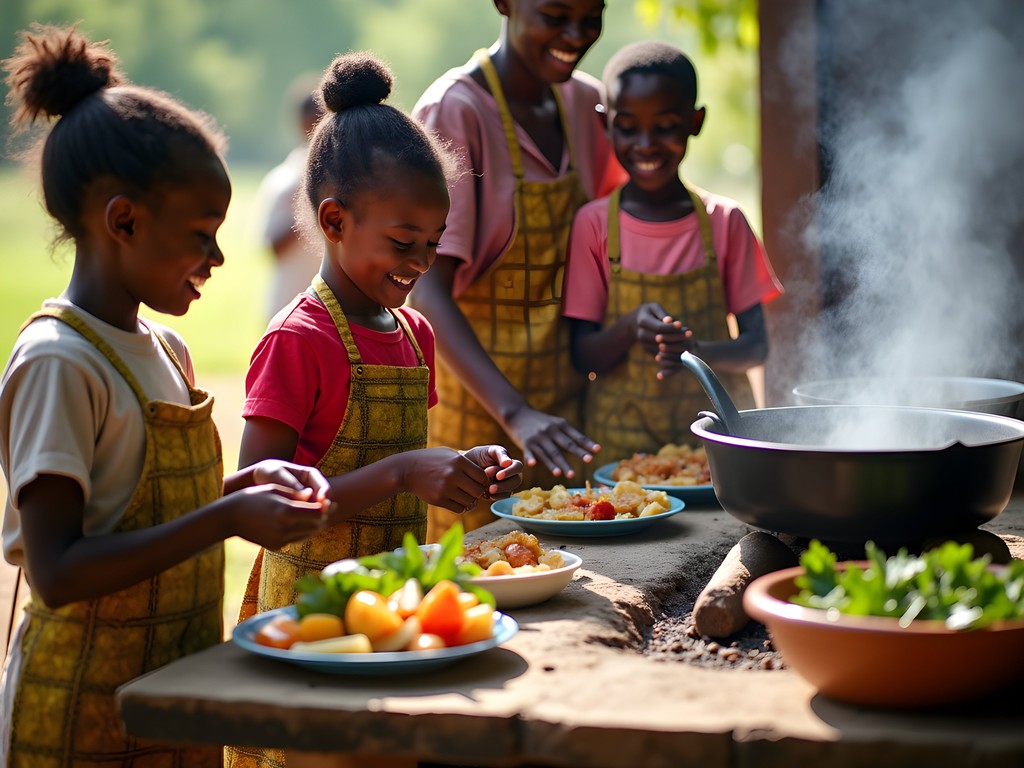
💡 Pro Tips
- Arrange home visits through reputable community tourism organizations that ensure fair compensation for host families
- Bring appropriate gifts that reflect your own culture—avoid simply handing out candy or money to children
- Learn basic greeting customs before visiting homes—Rwandans value proper greetings and introductions
Final Thoughts
As our week in Rwanda drew to a close, Claire and I watched her children pack their souvenirs—handcrafted baskets, a small drum, and journals filled with observations far more profound than one might expect from 11 and 13-year-olds. Rwanda had transformed them in subtle ways that would continue unfolding long after our return flights.
Traveling Rwanda with children requires thoughtful preparation and flexibility, but rewards families with experiences that textbooks simply cannot provide. The country's commitment to reconciliation offers powerful lessons in forgiveness and resilience that resonate with young minds, while its natural beauty and cultural richness create joyful discoveries at every turn.
As we said 'murabeho' (goodbye) to our Rwandan friends, Claire's daughter asked when—not if—we would return. This, perhaps, is the true measure of successful family travel: when children develop their own connection to a place that transcends tourism. Rwanda's thousand hills had worked their magic, creating a thousand memories that would shape these young travelers' worldviews for decades to come. For families seeking educational adventures that balance history, culture, and natural beauty, Rwanda offers a masterclass in transformative travel.
✨ Key Takeaways
- Rwanda offers accessible yet profound educational experiences for families with children 10+
- Balancing historical sites with nature experiences creates the ideal learning environment
- Connecting with local families provides the most memorable and authentic cultural exchanges
- Proper preparation helps children process difficult historical topics appropriately
- Rwanda's emphasis on cleanliness, safety and organization makes it more family-friendly than many expect
📋 Practical Information
Best Time to Visit
Year-round (June-September and December-February offer driest conditions)
Budget Estimate
$150-250 per day for a family of four (mid-range)
Recommended Duration
7-10 days
Difficulty Level
Moderate

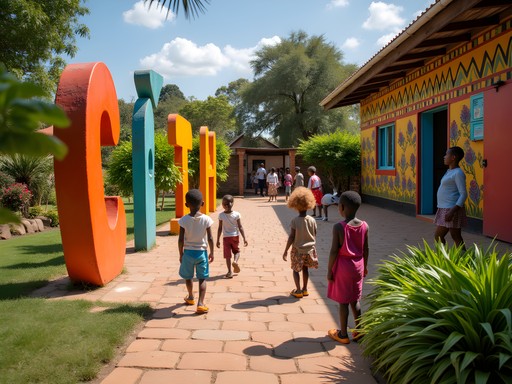
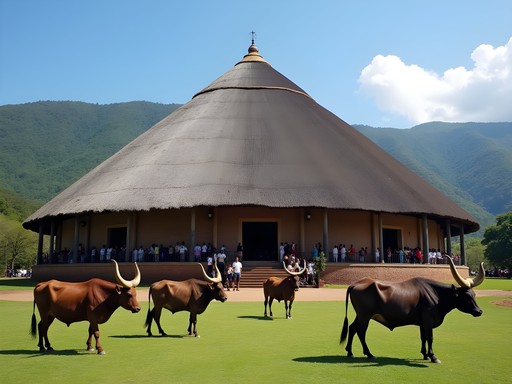
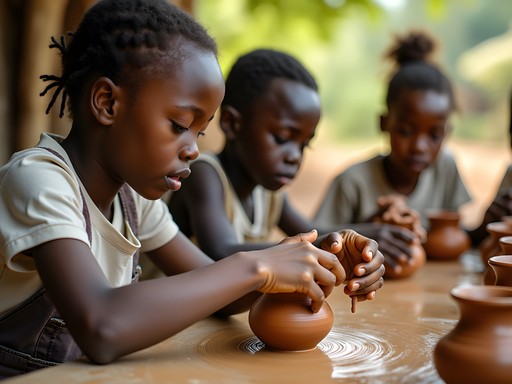
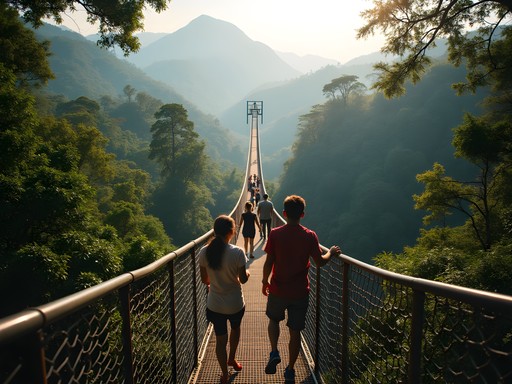
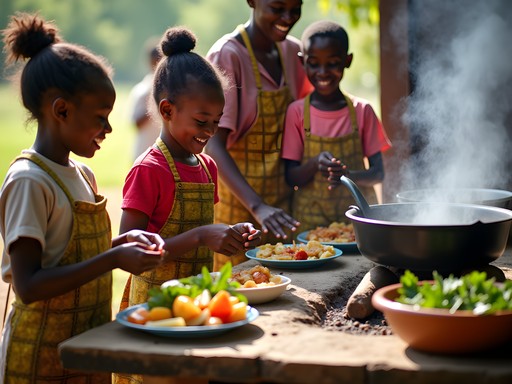


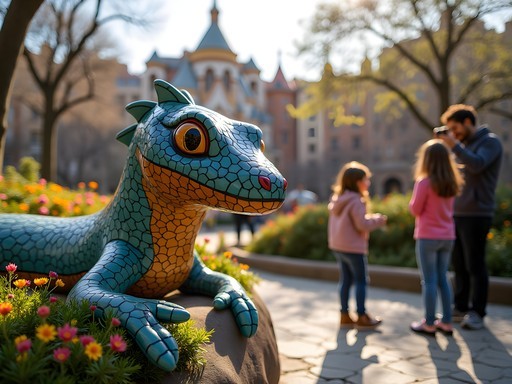
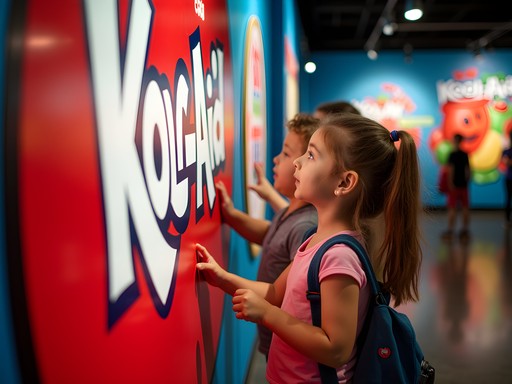

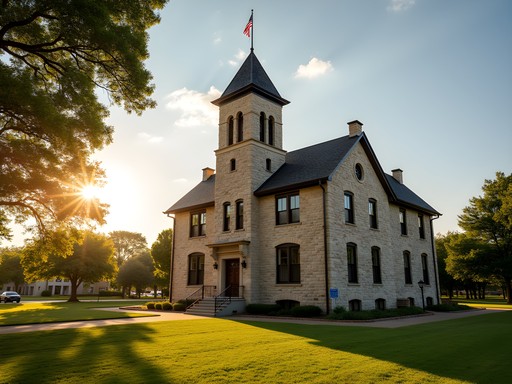
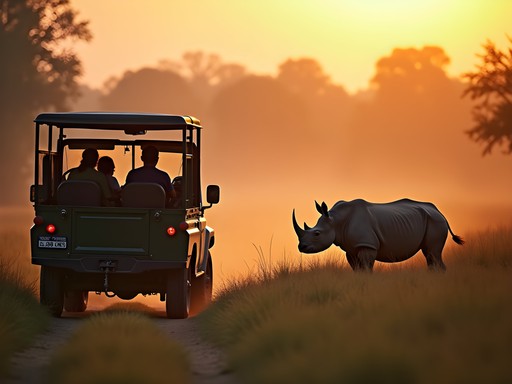
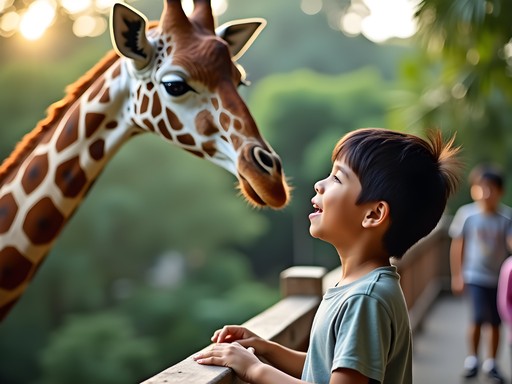

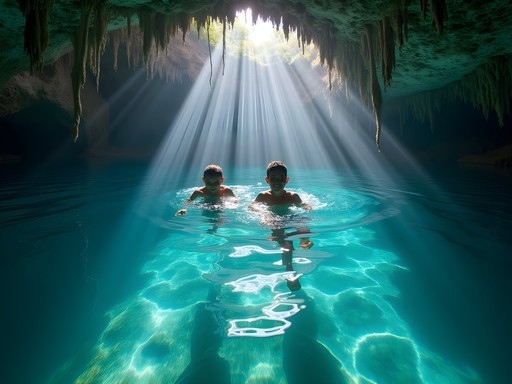
Comments
escapeclimber9167
This is SO cool!! Adding to my travel list right now!
adventuremood
We did something similar in Uganda last year and the kids still talk about it. Pro tip - bring a good kids camera so they can document their own journey. My daughter's photos were amazing and it kept her super engaged!
Megan Martin
Excellent guide, Amanda. I've been to Rwanda three times for conferences and always recommend it to colleagues looking for meaningful family travel. The infrastructure is excellent, English is widely spoken, and the educational opportunities are unmatched. The craft markets you mentioned in Butare are also great for teaching kids about fair trade and supporting local artisans.
adventureone
Going there next month with my 8 year old! Any hotel recommendations in Butare?
Megan Martin
I stayed at the Ibis Hotel when I was there for business - very clean, family-friendly, and centrally located. The staff can arrange all your tours too which makes logistics much easier.
Nicole Russell
Amanda, I LOVE this post! I visited Rwanda solo last year and honestly wished I'd had kids with me to experience it through their eyes. The Ethnographic Museum in Butare is incredible - I spent like 3 hours there. Did you guys make it to the Arboretum? It's such a peaceful spot and I bet kids would love running around there. Also totally agree about the motos being an adventure - though I can see how that'd be different with little ones! Rwanda surprised me in the best way possible. The cleanliness, the safety, the warmth of the people... it's such an underrated family destination.
sunsethero
Good to hear about the safety! That's my main concern
roamnomad
Love the photos! Those rolling hills are stunning
Bryce Diaz
Beautiful post, Amanda. I visited Butare solo last year and was blown away by the National Museum. The genocide memorial is heavy but so important. I'm curious how you approached that part with children? It's such a crucial piece of understanding Rwanda's history, but I imagine it requires careful consideration with younger travelers.
Amanda Morris
Great question Bryce. Claire's kids were 10 and 12, so we did visit but kept it age-appropriate. We focused on the resilience and reconciliation aspects. The museum staff were incredibly helpful in guiding us to the right sections.
sunsethero
This looks amazing! How old were the kids? Wondering if my 5 year old would be too young for this kind of trip.
Nicole Russell
Not Amanda but I've seen families with kids as young as 4-5 in Rwanda! The museums in Butare are really interactive. Just keep the days flexible and don't overschedule!
sunsethero
Thanks! That's really helpful
islandqueen
How safe did you feel traveling with kids there? I've got a 7 and 9 year old and this looks perfect but my husband is worried about safety.
Amanda Morris
Hi! Rwanda is actually one of the safest countries in Africa. We felt completely comfortable the entire trip. Kigali is incredibly clean and organized, and people were so welcoming to the kids everywhere we went!
islandqueen
Thank you!! That's really reassuring :)
escapelover
This is amazing!! Rwanda is totally on my bucket list now!
Venture X
Premium card with 2X miles, $300 travel credit, Priority Pass